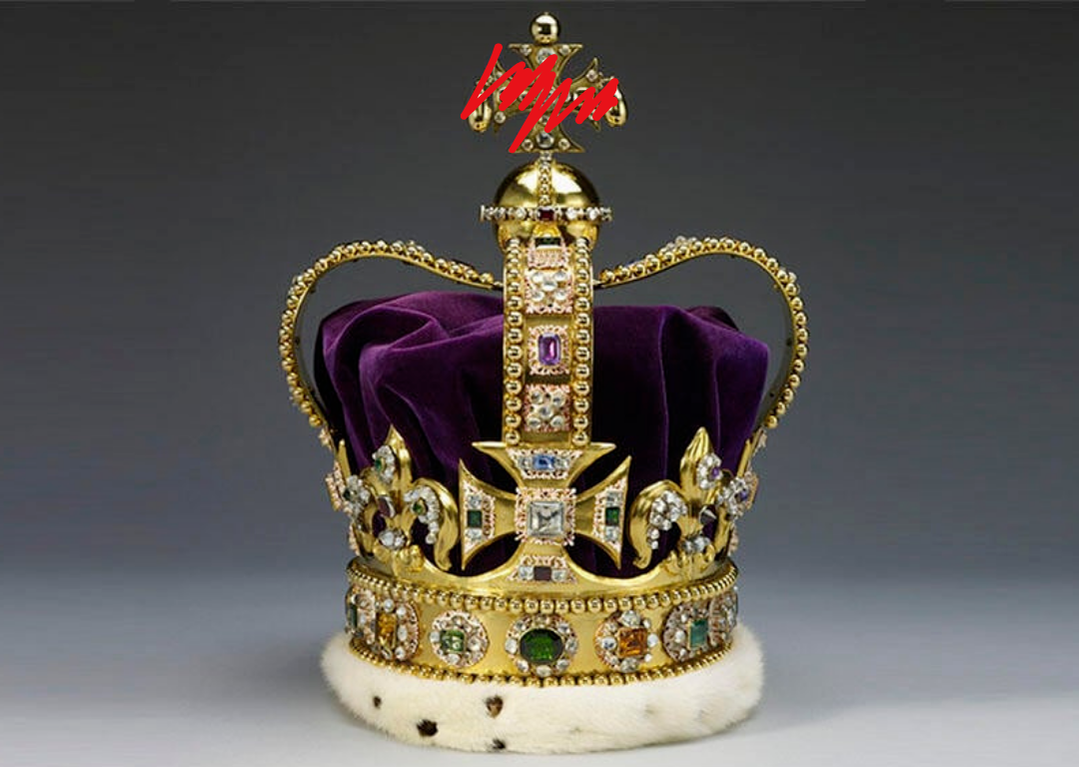|
Having never seen a coronation before (me and most other people!), I was intrigued to know what a coronation involved. Not because I’m a royalist; just out of curiosity. So I took a sneak peak at what’s planned (here). I was surprised at how ‘Christian’ it’s going to be – and if I was surprised, I guess a lot of others will be, too.
Which got me thinking: what would a coronation be like if Jesus had never existed? Or to put it slightly differently, what would an atheist coronation be like? Obviously, it wouldn’t be in an Abbey (churches wouldn’t exist if Jesus hadn’t existed). Nor would it be led by a cleric (and I’d have a different job if Jesus hadn’t existed – as a teenager and young adult, I investigated social work and transport management – so maybe I’d have done something like that instead!). There would be no prayers or readings from the Bible. And we’d have a different National Anthem – after all, “God save the King” is essentially a prayer set to music. But it’s not just the place and people and words that would change. The symbolism in the service would have to be different, too. The King wouldn’t be anointed (anointing kings is an Old Testament ritual – symbolising being chosen by God for the role of king). The orb and sceptre wouldn’t be adorned with crosses. Indeed, even the crown would be different – because that has a cross on top, too. Yet as I was looking at what’s going to happen in the coronation, it wasn’t just the people and place and words and symbols that struck me as deeply influenced by Jesus. What struck me most was how the underlying values in the coronation also reflect Jesus’ unique influence on the western world. Consider the following: 1. The limited nature of kingly rule. We’re familiar with the saying “Power corrupts. Absolute power corrupts absolutely.” That is why western democracies do not let any single person or party have absolute power. Right from the opening words of the ceremony, said by a child, Charles will be reminded that his kingship is not ultimate, not absolute: “Your Majesty … we welcome you in the name of the King of Kings.” Some countries have rulers – dictators – people who are allowed to think and act as though they answer to no-one. For all the pomp and circumstance we’ll see tomorrow (if you watch it), Charles will be reminded not to get above his station. Even the King answers to someone: the King of Kings – a title given in the Bible to Jesus. I wonder how an atheist coronation would keep a King humble? I hope it would try – but I’m not sure how successful it would be? 2. The purpose of kingship: to serve others. With people pledging loyalty to him – even his own firstborn son paying homage to him (spare a thought for the ‘Spare’, by the way – it’s not going to be an easy day for him!), with tens of thousands of military personnel saluting him, millions of people lining the procession route (and a smaller number protesting as well), and foreign dignitaries from around the world there to witness his crowning – it would be easy for Charles to think that everyone is there to serve him. But what are the first words that Charles himself will say at the coronation? “In [Jesus’] name, and after his example, I come not to be served but to serve.” So it’s not that tens of thousands are there to serve one man. It’s that one man – the King - is there to serve everyone else. And the inspiration for that is Jesus, the one who said, “The Son of Man [Jesus’ way of talking about himself] did not come to be served, but to serve, and to give his life as a ransom for many.” It was – and still is – a radical re-definition of leadership. Read the earliest historical accounts of Jesus’ life, and Jesus seemed to have power over nature (silencing a storm, walking on water) and all sorts of illness and ailments – even death. (And if you think those accounts are biased, remember that even the earliest non-Christian accounts of Jesus hailed him as a miracle worker.) Yet Jesus didn’t use that power to serve himself: only to serve others. In fact, his service went so deep, his love for others was so great, that he even went to the cross – an unimaginably cruel form of execution – giving his life as a ransom for many. (Incidentally, this idea of leadership as service is why we talk about government ministers and a Prime Minister – a minister being someone who serves others. Or at least, government ministers and the PM should be there to serve others … maybe they need to be reminded of Jesus’ example, too!) I’d like to think that an atheist coronation would find a way of encouraging a king to use their power to serve others rather than self. But it’s hard to imagine an example of that as powerful – and as sacrificially selfless – as Jesus. 3. The call of kingship: mercy, not might. Dictatorships – ancient and modern – are known for their brutality, injustice and severe punishments. That’s not to say that western democracies are perfect (I’ve become far more aware of racial injustices in the UK legal and policing systems over the last few years). But by and large, our systems are designed so that justice is administered impartially, punishments are proportionate to the crime, and the forces of law and order are themselves subject to scrutiny. No-one is above the law. At his coronation, Charles will be asked: “Will you to your power cause Law and Justice, in Mercy, to be executed in all your judgements?” to which he will respond, “I will.” Then as he receives a sword (one of several!), he will be instructed “Receive this kingly Sword. May it be to you … a sign and symbol not of judgement, but of justice; not of might, but of mercy.” Mercy isn’t a word we talk about much. But the principle of mercy makes a huge difference! In a dictatorship, mercy is in short supply: defendants aren’t allowed a fair trial; police and armed forces can inflict beatings (and far worse) without much fear of repercussions; punishments can involve labour camps, forced ‘re-education’ and torture. Those things happened far more in the UK (and other western democracies) in the past, but as the principle of justice-with-mercy has slowly seeped further into our law and order agencies, they have generally become more humane. So where does the idea of justice-with-mercy come from? It’s yet another value expressed in the Bible. As one of the most memorable lines from the ancient prophets put it, “What does the Lord require of you? To act justly and to love mercy and to walk humbly with your God.” From Old Testament times (ie pre-Jesus), God specifically instructed kings to demonstrate mercy in their governance. Why? Because kings were to reflect God’s heart and character. And God is wonderfully merciful! At one point, King David, facing a self-inflicted crisis, said, “Let us fall into the hands of the Lord, for his mercy is great; but do not let me fall into human hands.” He knew that God is more merciful than people tend to be. No-one demonstrates justice-with-mercy better than Jesus. On one occasion, when his smug opponents tried to trap him by bringing him a woman caught in adultery, they asked what punishment was appropriate. He deftly pointed out that her accusers were far from innocent (so they slunk away in shame) and refused to pass judgment on the woman (but also instructed her to leave her sinful ways behind her). Justice-with-mercy. Reflecting the heart of God, because Jesus is the king of God’s kingdom and God-in-human-flesh. Again, I’d like to think that an atheist coronation would encourage a king to remember mercy alongside the need for justice. But as showing mercy tends to be seen as a weakness in our society (most people are more keen on revenge, it seems!), I’m not sure how it could be presented as a character strength, let alone as an essential quality. But because Jesus told his followers to “Be merciful, just as your [heavenly] Father is merciful”, we find the principle of mercy seeping into this coronation. So what’s Jesus got to do with the Coronation of King Charles III? An awful lot, it turns out. Not just in the venue, the words and symbolism – but in the very principles and values underpinning the coronation. To take Jesus out of the coronation would be to throw the baby out with the bath water – it wouldn’t just radically change the nature of the coronation, but would involve an unravelling of western society itself. (See Glenn Scrivener’s “The air we breathe” for more on this.) As I said, I think many will be surprised at how ‘Christian’ the coronation is. Such surprise points to a deep and growing contradiction in our nation: on the one hand, our culture has for decades been steadily rejecting Christian faith and values – so that many people (through no fault of their own) have little or no understanding (let alone belief in) the person and work of Jesus of Nazareth. Yet on the other hand, many of the principles and values that are the foundation of western culture flow directly from Jesus – it’s just that most people (again, through no fault of their own) don’t realise that. One final thought. For all the ways in which the simple carpenter from Nazareth 2000 years ago has influenced tomorrow’s coronation, the coronations of King Jesus and King Charles couldn’t be more different. Incredibly, the earliest records we have of Jesus’ execution simultaneously present it as his coronation. Only, rather than shouting ‘Long live the king’, the leaders of Jesus’ day shouted ‘Crucify him!’. Rather than taking place in the iconic heart of a great city (even the lawn outside has been re-laid!), Jesus' coronation was on a rubbish dump outside the city wall. Rather than being robed with finest gowns, he was stripped naked. Rather than being lifted on to a centuries-old polished wooden chair as a throne, he was nailed to a rough-hewn wooden cross that was lifted high so all could see his demise. Rather than being crowned with the most expensive diamonds in the world, set carefully on his head, his crown was made of thorns and jammed in to inflict maximum torture. Rather than having swords presented to him as a sign of his triumph, he was nailed to the cross as proof of his failure. Some coronation that was! Yet Jesus’ coronation/execution turned out to be his ultimate victory. Plenty of Kings in ages gone have won battles and wars, but no other King has conquered death. That’s why Jesus alone is the King of Kings. And why he’s the King I worship and follow.
0 Comments
Your comment will be posted after it is approved.
Leave a Reply. |
|
Charity Number: 1130875
St James' by the Park church office: 133 Church Street, Shirley, Southampton, SO15 5LW 023 8077 1755 / email us / find us / privacy policy / safeguarding information |
St James by the Park Church has been Carbon Neutral since 2020
|
Website created by Sam Taylor Solutions


 RSS Feed
RSS Feed
